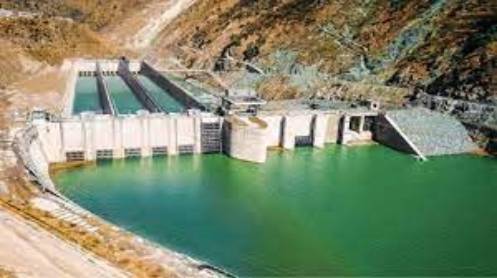ISLAMABAD: Significant design flaws have been identified in the 969MW Neelum Jhelum Hydropower Project in Azad Jammu and Kashmir (AJ&K). The Pakistani government has urged the Chinese company responsible for the project to rectify these issues promptly, sources informed Business Recorder.
Built at a cost of over Rs 500 billion, the project has experienced numerous delays and periodic shutdowns, with the latest closure occurring in early May this year. Prime Minister Shehbaz Sharif has commissioned a two-member committee, including former Federal Secretary Shahid Khan and Secretary of Water Resources Syed Ali Murtaza, to investigate the faults. The committee will also look into the delays in the report from the Panel of Experts hired in 2022 to address the blockage in the tailrace tunnel.
The National Power Control Centre (NPCC) reported during a public hearing on June 28, 2024, that hydel generation was below projections due to the shutdown of the Neelum Jhelum project, resulting in a financial impact of Rs 55 billion per annum.
During a visit to China in early June, Prime Minister Sharif discussed the issue with the heads of China Energy and China Gezhouba Group, the companies that built the project. The Chairman of Gezhouba Group has formed a committee to investigate the matter and submit a report.
On June 12, 2024, Chairman of the Water and Power Development Authority (WAPDA), Engr Lt Gen Sajjad Ghani (Retd), visited the project site in Nauseri, AJ&K, to inspect the de-watered head race tunnel and review any potential damages. The inspection process has commenced, and efforts to engage international experts are underway as directed by the Prime Minister.
The Neelum Jhelum project, constructed in a geologically weak and seismic-prone area, has faced significant challenges. Despite these issues, the project had provided over 20 billion units of clean electricity to the National Grid since 2018 and had reached a generation level of 1040 MW before the recent shutdown. WAPDA has yet to respond to specific inquiries regarding the project’s ongoing challenges.
Story by Mushtaq Ghumman







